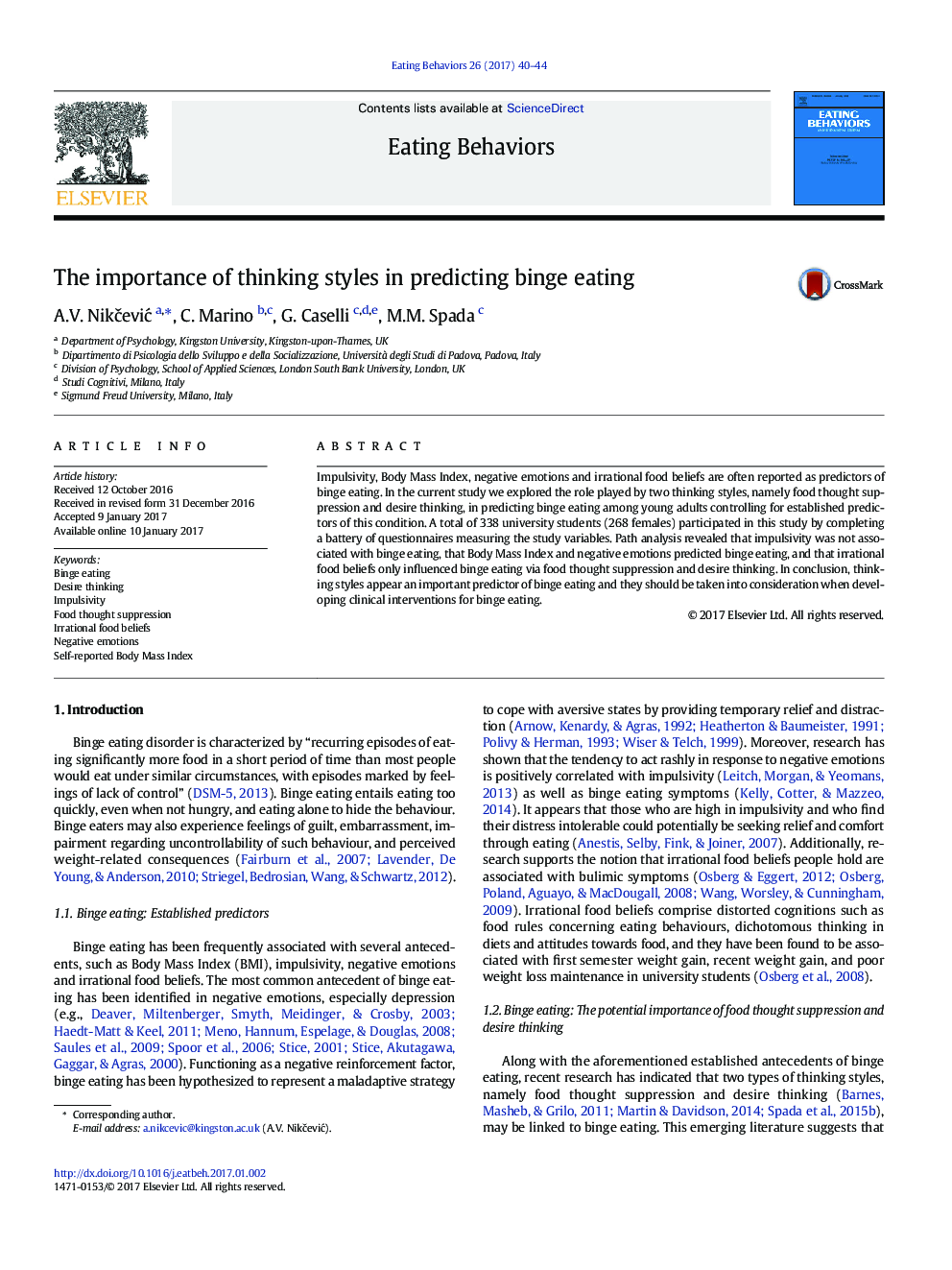| Article ID | Journal | Published Year | Pages | File Type |
|---|---|---|---|---|
| 5038790 | Eating Behaviors | 2017 | 5 Pages |
â¢Food thought suppression and desire thinking were found to be independent predictors of binge eating.â¢Thinking styles appear more important that content of thinking in predicting binge eating.â¢Addressing thinking styles in binge eating may be of clinical utility.
Impulsivity, Body Mass Index, negative emotions and irrational food beliefs are often reported as predictors of binge eating. In the current study we explored the role played by two thinking styles, namely food thought suppression and desire thinking, in predicting binge eating among young adults controlling for established predictors of this condition. A total of 338 university students (268 females) participated in this study by completing a battery of questionnaires measuring the study variables. Path analysis revealed that impulsivity was not associated with binge eating, that Body Mass Index and negative emotions predicted binge eating, and that irrational food beliefs only influenced binge eating via food thought suppression and desire thinking. In conclusion, thinking styles appear an important predictor of binge eating and they should be taken into consideration when developing clinical interventions for binge eating.
